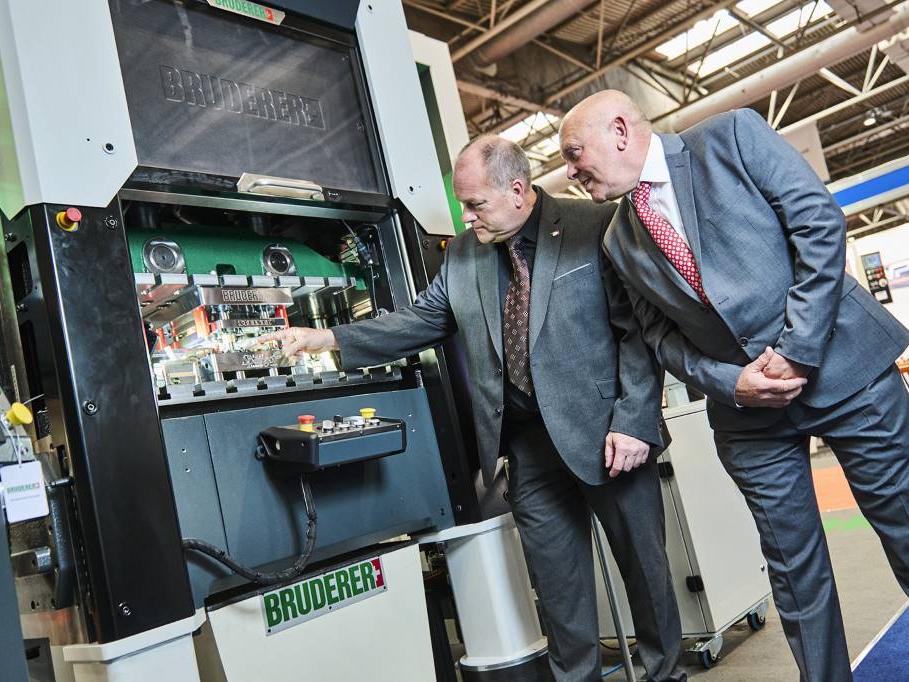How will 5G impact the UK manufacturing industry?

Fifth-generation mobile internet, or 5G, is just around the corner and it has the potential to be a game-changer. Subcon Laser Cutting explains why.
5G internet will be considerably faster than its predecessor. 4G regularly offers download speeds of 30Mbps, whereas 5G will be capable of 500Mbps to 1,500Mbps. That’s the difference between being able to download a HD film in 30 minutes or in 30 seconds.It will also drastically reducing latency. Latency determines how much delay or lag we get when using the internet. For example, if you’re on a video call there will be some delay between the other person speaking and you seeing them speak. 4G has a typical latency of 40-50 milliseconds, 5G will reduce this to 1 millisecond, which is unperceivable to users.
This will allow for real-time VR (Virtual Reality) interactions that using 4G latency rates would have made your stomach turn. It also opens up the possibility of remote-controlled robots that can more safely perform tasks in a work environment.
The 5G network, once fully operational, will have a much greater capacity, allowing thousands more devices to connect to the network. This hugely increases the potential of Internet of Things (IoT), as more and more devices will communicate with each other.
We expect 5G to be far more reliable than previous mobile internet networks, preventing dropped calls and allowing it to operate more critical functions.
https://twitter.com/ukmfgnews/status/1130460014009888768?s=20
How 5G will impact manufacturing in the UK
Studies suggest 5G could mean annual business revenues in the UK increasing by £15.7 billion by 2025 and manufacturing will be one of the top four industries to benefit from the new network.A further study, carried out by Qualcomm suggests globally it could create an extra 22 million jobs, with more people being needed to develop and monitor automation processes.
The boost provided by 5G is exactly the shot in the arm that UK manufacturing needed. Since the fourth quarter of 2017 manufacturing has seen a 1.7% decrease in productivity. Fifth-generation mobile internet is set to facilitate a 1% rise in productivity per annum, which translates to a yearly revenue increase of £1.7 billion.
The UK has many manufacturing firms just outside small towns, often in fairly rural locations. That has meant they often suffer from poor connectivity. 5G has the potential to change all that, but the benefits won’t be immediate.
When 5G first rolls out it will operate on high-frequency bands that have a fairly short range. So the benefits of 5G will reach densely populated areas first, as providers will still have to weigh up the infrastructure costs with how many paying users there are.
However, indirectly, 5G should eventually allow much-improved coverage, as the base stations needed for 5G are considerably smaller, making them cheaper to produce and making more locations suitable for installation.
The biggest benefit to manufacturing will be in the increasing use of smart factories. They combine automation, artificial intelligence, and IoT to improve efficiency and streamline processes.
Smart monitors will allow factories to carry out self-diagnosis constantly, allowing for preventative maintenance, reducing the time lost to repairing and replacing machines. The ability to collect real-time data allows analysts to improve factory processes, increasing their cost-effectiveness.
Eventually, every part of a factory will be connected to the IoT. By 2025 there will have been a 200% increase in the number of connected devices.
Five ways to prepare for 5G now
5G has just begun to be rolled out, many of the major mobile networks in the UK are releasing 5G services in 2019. The government’s digital strategy wants the rollout completed by the end of 2020. Once 5G becomes commonplace, the companies that are quickest to adapt to the new network will see the greatest benefits.
To start preparing for 5G, ensure that all new IT projects are forward-compatible and able to switch onto the 5G network as soon as it becomes available.
Begin moving as much data and information as possible onto the cloud. With the massive increases in speed that 5G allows, accessing the cloud will become easier and more commonplace. Relying on local mainframes will become increasingly inefficient.
With the improved communication available, thanks to the lower latency, remote working will become more plausible for more roles. Look at any expiring building leases and see if instead of renewing them you can move some of your workforce to remote working, reducing rental costs.
Contact your current internet service provider and find out where and when they are rolling out their 5G services. If they will not be operating in your area, or if another firm will do so sooner, then now is the time to switch.
Consider retraining your current workforce, or hiring new staff. Engineers will need to be fully trained in deploying and assessing automated processes.
Subcon Laser Cutting www.subconlaser.co.uk














